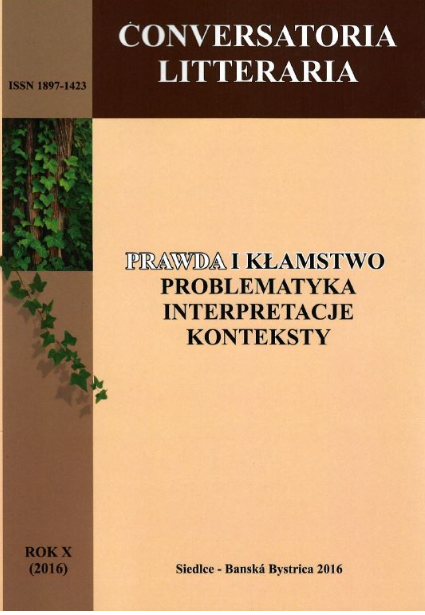ZWISCHEN REALITÄTSBLINDHEIT, LEID UND HOFFNUNG ODER DAS GEFÄHRLICHE SPIEL MIT DER WAHRHEIT. ZUM MOTIV DER BARMHERZIGEN LÜGE IN AUSGEWÄHLTEN WERKEN DER DEUTSCHEN LITERATUR
Słowa kluczowe:
lie, blindness, hope, pityAbstrakt
The article is devoted to the motif of a lie in selected works by German-language writers, and the texts analysed include Friedrich Dürenmatt’s Der Blinde, Stefan Zweig’s Die unsichtbare Sammlung and Jurek Becker’s Jakob der Lügner. A lie as an element used in literature has different representations: frauds, intrigues, betrayals and purposeful deceptions are accompanied by lies invoked by fear or necessity, and what matters in evaluation of the behaviour of the protagonists that lie are the reasons and motives of their decisions. The anal-ysis included is focused on a merciful lie, a lie caused by pity, which determines significantly the course of action and the protagonists’ lives, saves their health or even life; a lie that results from good and love for other people.




